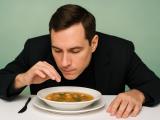A recent study by British scientists, conducted on a group of healthy young men between 22 and 37 years of age, carefully examined what happens to our bodies after consuming almost twice as much food as usual. They used pizza, which most people are willing to consume in considerable quantities. The average calorie intake during the binge eating exceeded 3,000 kilocalories (kcal) - which is more than the daily recommendation for adult men, which ranges between 2,000 and 2,500 calories a day, depending on physical activity.
Interestingly, the participants had almost normal blood glucose levels after such a meal - which means that their pancreas and hormones were still functioning effectively. Insulin, the hormone that lowers blood sugar, was about 50% higher, as expected, because the body had to quickly restore balance.
But where is the catch?
Although the body can balance occasional overeating nicely, this does not mean that this way of eating is without risk. Experts warn that regular overeating leads to serious problems: obesity, type 2 diabetes, and cardiovascular diseases. The World Health Organization estimates that 39% of adults worldwide are overweight, with 13% being obese (data from 2022).
The Surprising Adaptability of Our Body
One of the most interesting findings of the study is that participants, after a meal that was almost twice the usual size, had only slightly elevated levels of fats in the blood - specifically triglycerides and free fatty acids. This is unexpected, as many previous studies have shown that even moderate fat intake quickly raises these levels.
Explanation? The healthy body has efficient mechanisms for storing and processing excess energy - primarily by storing it in fat cells. And here lies the long-term problem. Every time we eat too much, the body quietly stores the excess for "hard times" - although, truth be told, those times mostly never come.
What about hormones and the brain?
The study also showed that levels of some hormones that regulate satiety and metabolism significantly changed after overeating. We're talking about GLP-1 and peptide YY - hormones secreted by the intestines that help the brain understand when we've had enough. So, the body reacts as if to say: This was more than enough!
It's also interesting that four hours after the meal, participants felt sleepy and had no desire for further feeding - even sweets, which usually trigger reward systems in the brain. These brain systems act as internal "sweets" - when we eat something sweet, we feel pleasure. But this time, the brain said: No, thank you. Let's digest the pizza first.
What Does Folk Wisdom Say?
If we look at folk traditions, we'll see that our ancestors didn't have studies, but they still knew: A full stomach, an empty head. An old saying that is actually very wise. Even Hildegard of Bingen, a German Benedictine abbess and herbalist from the 12th century, warned against heavy and excessive meals, which were believed to stifle the spirit and body. In folk medicine, overeating was associated with many problems - from drowsiness and bad mood to metabolic disorders.
Folk remedies often included bitters - herbs such as wormwood, centaury, dandelion, or angelica. These herbs stimulate bile and digestive juices and help the body digest larger amounts of food better. Bitters are known for opening up digestion and regulating it. As the old saying goes: Bitterness in the mouth - health in the stomach.
What Happens in the Body?
When you eat too much, the body first triggers a satiety signal. Then the pancreas starts secreting more insulin to regulate blood sugar. The liver begins to process excess nutrients rapidly, some are used, but most are stored - in fatty tissue. If this is not repeated often, the body quickly returns to balance. However, if this becomes a habit, the body starts to accumulate energy, metabolism slows down, hormones get confused, and we can easily slip into a vicious cycle of overeating and increased body weight.
What Do Studies Show?
A study published in The American Journal of Clinical Nutrition years ago showed that people could easily consume 30–50% more calories in one meal if the food is tastier and available in larger quantities. In another study published in Obesity Reviews, it was found that overeating triggers a short-lived euphoria, similar to that from psychoactive substances - meaning we can become "addicted" to the feeling of fullness. And this is what quickly leads us into trouble.
The Body Can Handle a Lot, but Only up to a Point
Scientists say the body is incredibly adaptable - it can digest huge amounts of food, maintain stable blood sugar and fat levels, even regulate appetite through hormones. But that doesn't mean it's wise to do it often. One meal, even if it's huge, probably won't have consequences. But more of such meals, week after week, year after year - and the body won't be able to resist.
If you ever indulge too much - say, during holidays or at a birthday party - don't worry. But the next day, listen to your body: rest, drink plenty of fluids, have some tea made from dandelion, wormwood, or fennel (also good against bloating), and opt for less food. Your body will be grateful.
And one more thing: if someone tells you next time that you ate too much - you can answer with a smile: my body can handle it, but only if I give it a break afterwards.
Datum: 13. JUL 25 - GOOD TO KNOW
How occasional overeating affects the body?
Let us reassure you: if you are healthy, occasional overeating once a month probably won't have any lasting effects on you. However...
(FW)
 Would you like to be informed about news on the website?
Would you like to be informed about news on the website?
Just enter your e-mail
Overeating effects on body
Occasional overeating consequences
Health effects of binge eating
Body's response to overeating
Long-term risks of overeating
|
Copyright (c) Foodwhisper.com March 2018 |
π | Contact: info@foodwhisper.com |
About us | Facebook |  |









